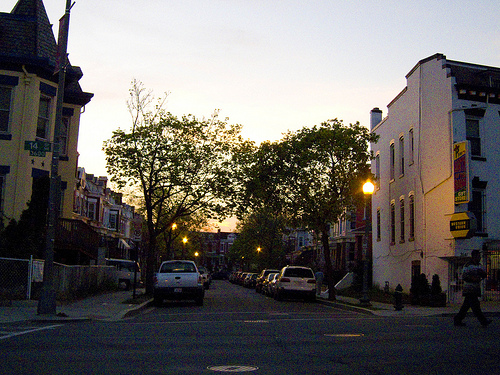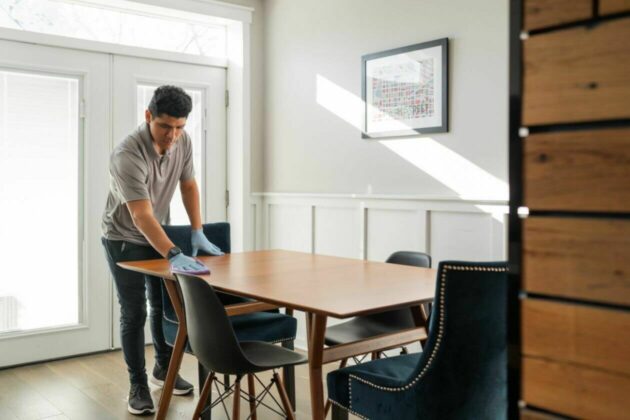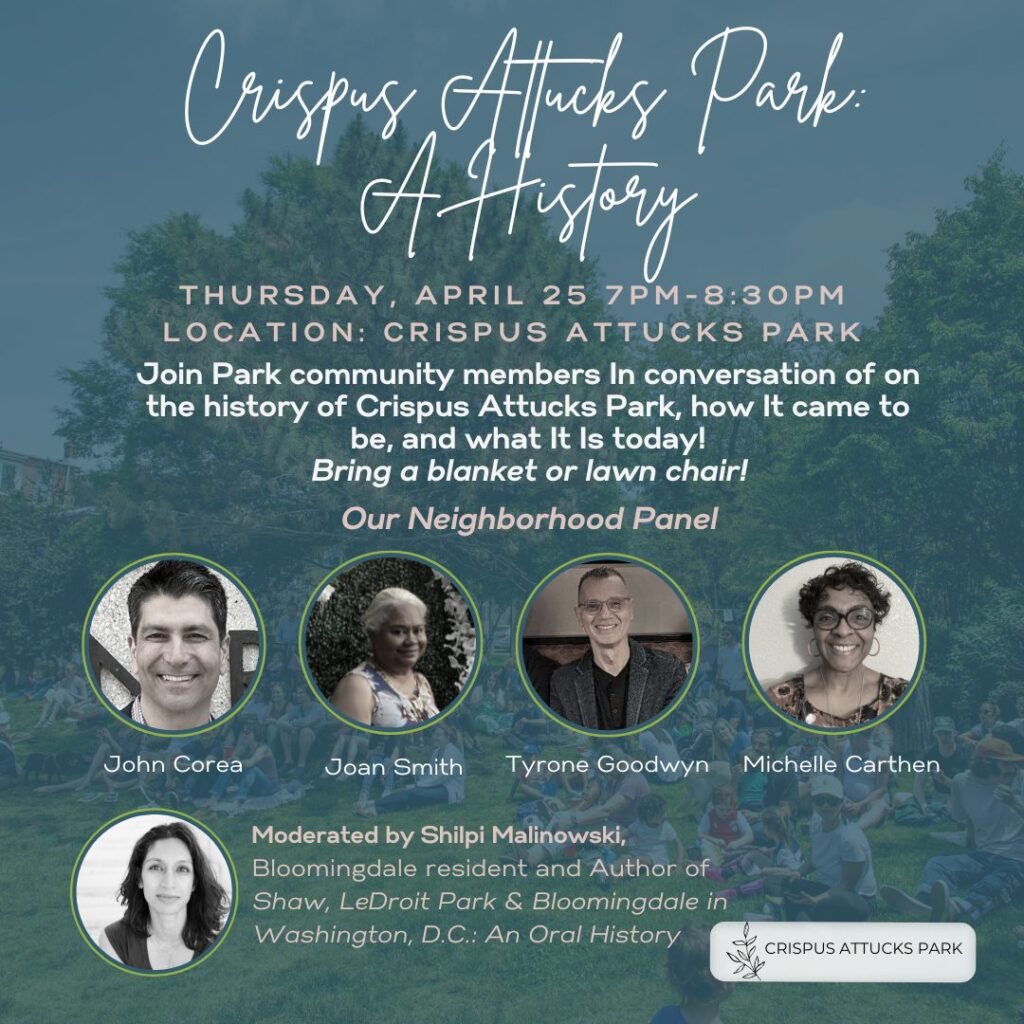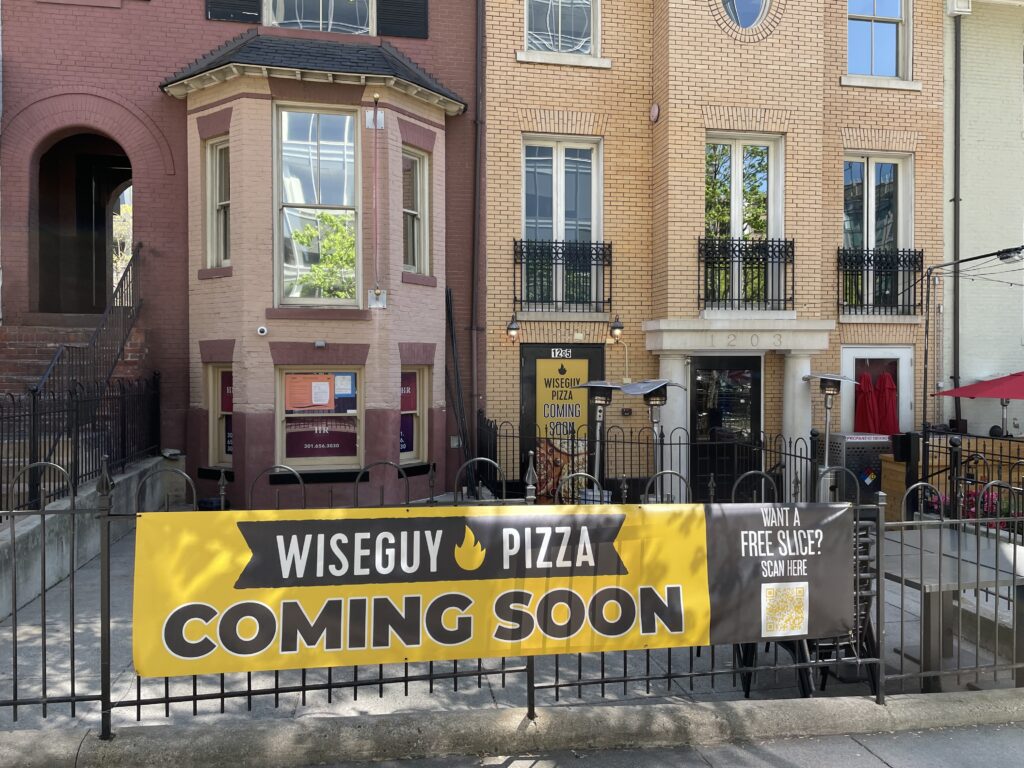
Photo by PoPville flickr user a.w.miller
Griffin & Murphy, LLP, is a boutique law firm in Washington, D.C. concentrating its practice in real estate law (including development, finance, leasing, zoning and condominium conversions), as well as estate planning and probate, civil litigation, and business law. The attorneys of Griffin & Murphy, LLP are licensed to practice law in the District of Columbia, Maryland and Virginia. Griffin and Murphy, LLP was founded in 1981.
Please send any legal questions relating to real estate, rentals, buildings, renovations or other legal items to princeofpetworth (at) gmail (dot) com, each week one question will be featured. You can find previous questions featured here.
Question:
I had my own question this week based on a listing I read: What happens when you buy a home/building that is tenant occupied?
Answer:
The laws governing rental housing in the District of Columbia were drafted to provide ample protection to ensure that renters have affordable and reliable housing options. The downside of this, at least in the eyes of many purchasers and sellers of houses and condos, is that it can be very difficult to sell or purchase a tenant-occupied property.
If a house is occupied by a tenant, any sale of the house will be subject to the tenant’s lease. That means that if a tenant is occupying the house pursuant to a lease with a two year term and you purchase the house after the first year of the term, you will have to allow the tenant to live in the house during the first year of your ownership. You are not allowed to terminate the tenant’s contractual right to occupy the house simply because you now own the property. Continues after the jump.
One issue that sellers often face when trying to sell a tenant-occupied property is that it is hard to schedule showings of the house to potential buyers. A tenant is entitled to quiet enjoyment of a rental property, so the owner has no right to enter the house to show it to potential buyers unless the owner specifically reserved that right in the lease. Not many people are willing to purchase a house without have a chance to see it beforehand. Even when the owner did reserve the right to market the property to prospective buyers, the typical language in the lease states that the owner has to give the tenant reasonable advance notice of the showing, which means that real estate agents often have to make arrangements a couple days in advance of when they want to show the house.
From an owner’s perspective, it can take much longer to sell a tenant-occupied property because tenants have specific rights under the D.C. Tenant Opportunity to Purchase Act (“TOPA”). Under TOPA, if the owner wants to sell its rental property, the owner must first offer it to its tenant(s) for purchase. The statute sets forth specific dates by which the tenants must (i) express their interest in purchasing the property, (ii) negotiate the sales contract, and (iii) go to closing.
The time periods for taking action under TOPA vary depending on the size of the property being sold (i.e., 1 unit, 2-4 units, 5 or more units). Let’s assume an owner wants to sell a rowhouse that has been divided into two rental units, both of which are tenant-occupied. The owner must provide each tenant with a written copy of the offer of sale by certified mail and post a copy of the offer of sale in a conspicuous place in common areas of the house. The notice must also be filed with the DC Department of Housing and Community Development – Rental Conversion and Sale Division. The offer must include the asking price and material terms of the sale. The tenants have 15 days to jointly advise the owner if they are interested in purchasing the house. If the owner does not receive a joint statement during that time period, the individual tenants have 7 additional days to express an interest in purchasing the house on their own. If the owner receives a notice of interest to purchase from the tenants jointly or individually during this combined 22 day time period, then the interested party has another 90 days to negotiate a contract to purchase the house from the owner. If the parties fail to enter into a contract at the expiration of the 90 day period, the owner has to then provide an additional 30 days to any of the current tenants to enter into a contract to purchase the house. Once there is a contract in place with one or all of the tenants, the purchaser has 90 days to go to settlement, but the purchaser can get an additional 30 days if more time is required by the purchaser’s lender.
If the owner’s tenants do not accept the owner’s offer to negotiate a purchase and sale during the 22 day period (for 2-4 unit buildings), the owner can enter into a contract to sell the house to a third party. In such case, the tenants will have an additional 15 day first right of refusal to match the contract between the owner of the third party. In actuality, the owner can enter into a contract to sell the house to a third party first, but that contract will have to be provided to the tenants and all of the same timeframes mentioned above will apply, including the 15 day first right of refusal.
If the owner has in good faith contracted in writing to sell the house to someone who will use it for their immediate personal use and occupancy, once all of the time periods for exercising TOPA rights have elapsed, the owner can seek to evict the tenant. The owner must provide the tenants with a 90-day notice to vacate in advance of the owner’s action to recover possession of the house.
If you decide to buy a house that is occupied by month-to-month tenant and you keep them in place for the rental income, if you later decide that you want to occupy the house yourself, you can terminate the tenancy and retake possession of the property by providing the tenant(s) with a 90-day notice to vacate.
For all of these reasons, it is much easier to sell a property that is vacant or owner-occupied.
This response was prepared by Mark G. Griffin and Patrick D. Blake of Griffin & Murphy, LLP. The material contained in this response has been prepared for informational purposes only and should not be relied upon as legal advice or as a substitute for a consultation with a qualified attorney. Nothing in this response should be considered as either creating an attorney-client relationship between the reader and Griffin & Murphy, LLP or as rendering of legal advice for any specific matter.
Recent Stories

Photo by Beau Finley Ed. Note: If this was you, please email [email protected] so I can put you in touch with OP. “Dear PoPville, Him, dapper chap with a light…

For many remote workers, a messy home is distracting.
You’re getting pulled into meetings, and your unread emails keep ticking up. But you can’t focus because pet hair tumbleweeds keep floating across the floor, your desk has a fine layer of dust and you keep your video off in meetings so no one sees the chaos behind you.
It’s no secret a dirty home is distracting and even adds stress to your life. And who has the energy to clean after work? That’s why it’s smart to enlist the help of professionals, like Well-Paid Maids.

Unlock Peace of Mind for Your Family! Join our FREE Estate Planning Webinar for Parents.
🗓️ Date: April 25, 2024
🕗 Time: 8:00 p.m.
Metropolitan Beer Trail Passport
The Metropolitan Beer Trail free passport links 11 of Washington, DC’s most popular local craft breweries and bars. Starting on April 27 – December 31, 2024, Metropolitan Beer Trail passport holders will earn 100 points when checking in at the
DC Day of Archaeology Festival
The annual DC Day of Archaeology Festival gathers archaeologists from Washington, DC, Maryland, and Virginia together to talk about our local history and heritage. Talk to archaeologists in person and learn more about archaeological science and the past of our






